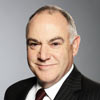Andrew Hunt Commentary
Can the Rest of the World Afford Higher US Inflation?
There is a relatively simple narrative dominating markets at present, namely that the US economic recovery will accelerate as the latest stimulus measures are enacted, the output gap will close (if you believe it is negative – or it will widen further if you think as we do that it is already positive,) and US inflation will pick up by some amount.
Japan equities poised for further gains along with a turnaround for value
In February 2021, Japan’s Nikkei Stock Average reached JPY 30,000 for the first time in over three decades. We believe that equities will keep rising, and that amid this shift in the broader market Japanese value stocks are on the cusp of a long-awaited turnaround.
Credit spreads explained: The devil is in the details
For corporate bond investors one of the most important points of discussion is spreads. Spreads are the industry term for the risk premium an investor aims to earn in the corporate bond market. It is the difference between the yield a bond is promising and the risk-free rate. If spreads are narrowing it is positive for investors as the price of the corporate bond will increase; likewise, a widening leads to a lower bond price.
Meditation for investment professionals
The investment industry is constantly searching for ways to improve its decision-making processes. Some firms increase their research teams while others move into quantitative fields such as machine learning. Amid this constant search, we focus on an alternative way to enhance the quality of our decisions; mindfulness can make the difference between a rushed, emotional decision and a thoughtful, rational conclusion.
Deficits Don’t Matter – At Least Until They Do……
During the 1980s, the favourite worry for most economists – or Cassandras - was always deficits, be they fiscal or current account deficits (and the USA of course had both throughout the 1980s).
Global Strategy Thoughts for 2021
US capitalism was built on large societal divisions, but sometimes such becomes intolerable and the majority of the population revolts. In this case, the virus accentuated the income divide and engendered even greater angst. However, during the past four years, the majority fought back in different ways and ended up fighting each other, while the wealthy prospered more than ever, with high-skill workers reaping gains while lower-skill workers struggled and were often displaced, especially after the virus.
2021 Global Credit Outlook
The last 12 months have seen a significant rotation of topics discussed at investment meetings worldwide. The agenda has moved from macroeconomic data to infection rates, hospitalization rates, vaccinations and other issues related to the COVID-19 pandemic.
Investing for the Long Term: 'Future Quality' Companies
The Nikko Asset Management Global Equity team philosophy is based on the belief that investing in ‘Future Quality’ companies will lead to outperformance over the long term. This paper draws on academic evidence to outline the three fundamental concepts which underpin our definition of ‘Future Quality’ investments.
ESG in the investment process
Wealthy individuals across generations are interested in investing for environmental or social impact, but Millennials are by far the most active in evaluating and indeed, demanding these strategies.
Jumping the paradox
2020 was a year of fear, anxiety, uncertainty and global economic defibrillation. And yet for investors and owners of assets – from art, to gold to property – it was also one of growth, prosperity and increasing confidence. This asset price pop should not have come as a surprise to anyone following our commentary through 2020, however the wider reaction has been one of disbelief.
Could Inflation Haunt the World in 2021?
Since 1995, the price of an ‘average’ restaurant meal in the USA has increased by 102%. Since 2009, the price of a meal has increased by 25%. Hotel prices have increased by 50% since 1995, and by 30% since the GFC (if we exclude the Covid-19 period).











